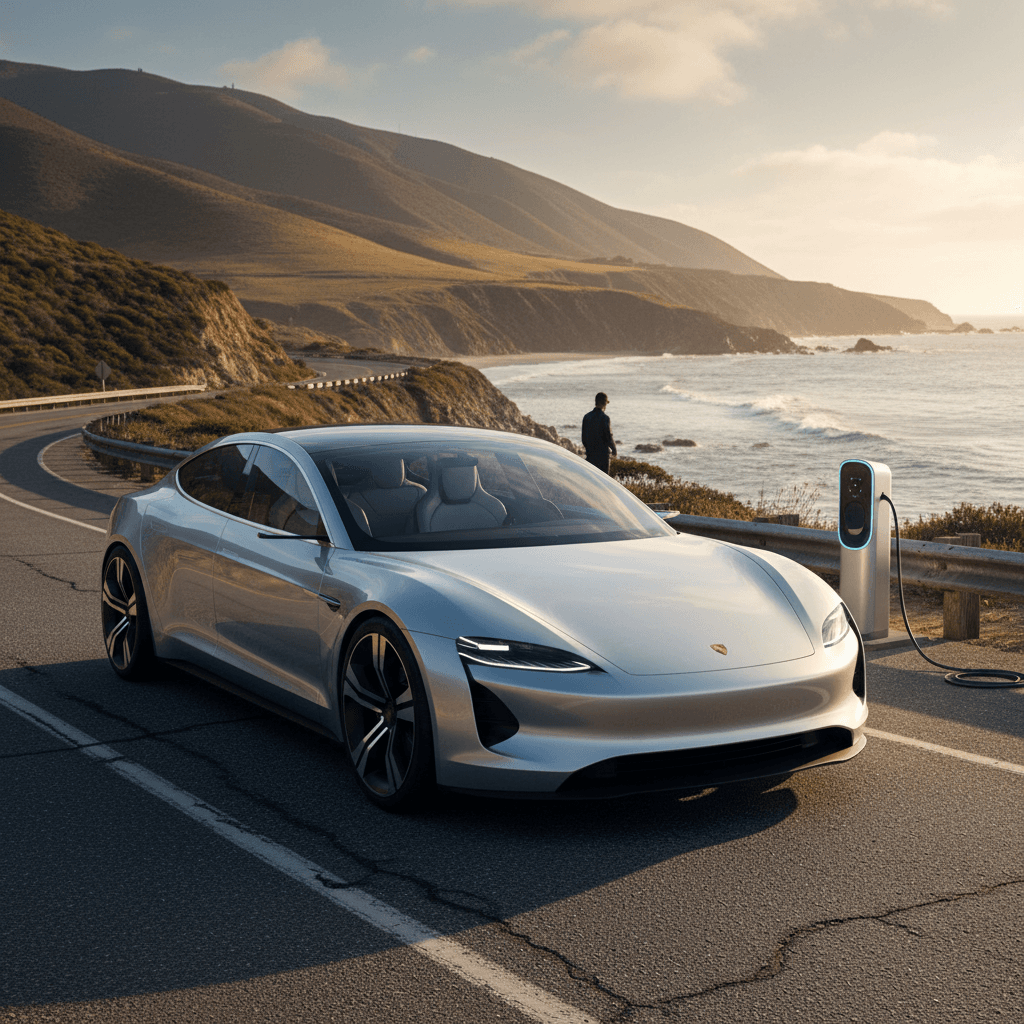Electric SUV prices are finally starting to look…normal. In 2025, you no longer need $70,000 and a tolerance for chaos to get into a battery‑powered family hauler. You can find new electric SUVs in the mid‑$30,000s, three‑row luxury ships well into six figures, and, most interesting, used EV SUVs that undercut their gas counterparts while serving up more tech and lower running costs.
At a glance
Electric SUV price overview for 2025
Electric SUV price ranges in 2025 (U.S.)
Sticker prices are only half the story, but they’re where the anxiety starts. On paper, EV SUVs still look expensive versus gas. That’s partly because battery packs front‑load cost that you’d normally pay drip‑by‑drip at the fuel pump. It’s also because the earliest EV SUVs were pitched as premium tech products, not family appliances. The good news: competition and softening demand have pulled prices down in 2024–2025, especially on the used side.
How much is a new electric SUV in 2025?
For a new electric SUV in 2025, you’re typically looking at around $40,000 as the center of gravity. You can dip below that with smaller models and climb quickly with bigger batteries, more power, or luxury trim.
Sample 2025 electric SUV MSRPs (U.S.)
Representative starting prices for popular 2025 electric SUVs. MSRPs shown exclude destination and dealer fees.
| Model (2025 MY) | Type | Approx. Starting Price | Max Range (EPA est.) |
|---|---|---|---|
| Hyundai Kona Electric | Subcompact | $34,400–$34,500 | Up to ~261 miles |
| Chevrolet Equinox EV | Compact | $34,995 | Up to ~319 miles |
| Toyota bZ4X | Compact | $38,400–$38,500 | Up to ~252 miles |
| Ford Mustang Mach‑E | Compact | $38,400–$38,500 | Up to ~320 miles |
| Subaru Solterra | Compact AWD | $39,915 | Up to ~227 miles |
| Nissan Ariya | Compact | $41,160 | Up to ~289 miles |
| Volkswagen ID.4 | Compact | $41,400–$41,500 | Up to ~291 miles |
| Hyundai Ioniq 5 | Compact | $43,975 | Up to ~318 miles |
| Kia EV6 | Compact | Mid‑$40,000s | Up to ~310 miles |
| Kia EV9 | 3‑row midsize | From ~$56,400 | Up to ~304 miles |
| Jeep Wagoneer S | Midsize performance | From ~$67,000 | 300+ miles (target) |
Always check local pricing and equipment, regional changes, incentives, and dealer markups can move these numbers.
MSRP vs reality
The cheapest electric SUVs you can buy right now
If your search history reads “cheapest electric SUV prices,” you’re in the right paragraph. In 2025, a surprising number of EV SUVs sit under $40,000 before fees, and a few flirt with the mid‑$30,000s while still delivering 200+ miles of range and modern safety tech.
Budget-friendly new electric SUVs (around $35k–$40k)
Small on size, not on tech.
Hyundai Kona Electric
Why it’s interesting: One of the most complete small EV SUVs on the market.
- Starting around mid‑$34,000s
- EPA range up to about 261 miles
- Redesigned cabin with big‑car tech
Chevy Equinox EV
The new benchmark mainstream EV SUV.
- Base price right under $35,000
- Up to ~319 miles of range
- Optional Super Cruise hands‑free driving
Toyota bZ4X / Subaru Solterra
Twins with different personalities.
- Toyota bZ4X from high‑$30,000s
- Solterra just under $40,000 with standard AWD
- Excellent safety suites and reliability cred
Think small, save big

Used electric SUV prices: where the real value is
Here’s where things get interesting. After a few over‑caffeinated years of markups and waitlists, the used EV market has swung the other way. Many electric SUVs have seen faster depreciation than comparable gas models, thanks to rapid tech updates and the usual headlines about range anxiety. For buyers, that’s a hidden gift.
Typical used EV SUV price bands (2025)
- $18,000–$25,000: Older or higher‑mileage Hyundai Kona Electric, Kia Niro EV, early Nissan Ariya, base VW ID.4.
- $22,000–$30,000: Many 2–4‑year‑old Ford Mustang Mach‑E and Tesla Model Y examples, depending on mileage and trim.
- $28,000–$35,000: Newer‑shape Kia EV6, Hyundai Ioniq 5, and early Kia EV9 or Cadillac Lyriq appearing off lease.
Why used EVs can be bargains
- Rapid model updates push older tech down in price.
- Some buyers overestimated their charging tolerance and are bailing out early.
- Incentive changes and higher interest rates cooled demand, tilting power back to buyers.
- Battery warranties, often 8–10 years, mean many used EVs still have years of coverage left.
Don’t skip battery health

What really drives electric SUV prices?
- Battery size and chemistry: Bigger pack, bigger price. A jump from ~65 kWh to ~100 kWh can add five figures to MSRP.
- Range and efficiency: Crossing the psychological 300‑mile mark often carries a premium, even if you rarely need it.
- Motors and performance: Dual‑motor AWD and performance trims can add $5,000–$15,000 over base models.
- Charging hardware: 800‑volt systems and faster DC charging typically live on more expensive platforms.
- Brand positioning: A Kia EV6 and a Genesis GV60 may share DNA, but the badge and interior materials separate mid‑$40,000s from mid‑$60,000s.
- Equipment and software: Driver‑assist suites, glass roofs, premium audio, and high‑end infotainment all move the needle.
- Incentives and policy: Changes to EV tax credits and state rebates can quietly add or subtract thousands from effective price.
Why EV SUVs still feel expensive
Electric SUV price tiers: budget to luxury
Three price tiers of electric SUVs
How far your money actually goes.
Budget (≤$40k new, low‑$20ks used)
- Subcompact & compact SUVs
- ~200–270 miles of range
- Mostly cloth interiors, modest options
- Great for commuting and light family duty
Mainstream ($40k–$55k new)
- Roomier compact/midsize SUVs
- Up to ~300+ miles of range
- AWD, nicer materials, more tech
- Sweet spot for most families
Premium & luxury ($55k–$90k+)
- 3‑row, performance, and luxury brands
- Big batteries, big power
- Top‑tier driver assistance and audio
- Compete with German luxury SUVs on price
Why total cost of ownership matters more than MSRP
An electric SUV with a scary sticker price can still be the cheaper choice over five years. That’s because fuel and maintenance costs drop dramatically once you kick gasoline to the curb. At the same time, higher insurance and faster depreciation can eat away at the advantage if you buy new and flip the vehicle quickly.
Where EV SUVs save you money
- Energy: Even with recent rate bumps, home charging usually beats gas on a cost‑per‑mile basis.
- Maintenance: No oil changes, fewer moving parts, less routine service.
- Brakes: Regenerative braking means pads and rotors often last longer.
- Stop‑and‑go driving: EVs sip, gas SUVs chug.
Where EV SUVs can cost more
- Purchase price: Batteries still keep MSRPs elevated.
- Insurance & registration: Higher vehicle values can mean higher premiums and fees.
- Depreciation: Tech moves quickly; first owners take the biggest hit.
- Public charging: Fast‑charging on the road is convenient but often pricier than home charging.
How Recharged helps you see the full picture
How to get the best deal on an electric SUV
Smart steps before you sign for an EV SUV
1. Decide how much range you actually need
Be honest about your driving. If you rarely exceed 150 miles in a day, you probably don’t need a 300‑mile battery, and you shouldn’t pay for one.
2. Shop used before you default to new
Because early owners absorb most of the depreciation, a 2–3‑year‑old electric SUV can feel new while costing like a mainstream gas crossover.
3. Compare out‑the‑door prices, not just MSRPs
Ask for line‑item quotes that include destination, documentation fees, and dealer add‑ons. That $39,995 special loses its shine with $3,000 in extras.
4. Look at financing, not just the sticker
Higher EV prices make loan terms and rates even more important. At Recharged, you can <strong>pre‑qualify online</strong> to see real monthly payments with no impact to your credit.
5. Verify battery and charging performance
On a used EV SUV, ask for data: state‑of‑health, DC fast‑charge history, and whether software updates have been applied. Recharged’s diagnostics are built around exactly these questions.
6. Run your own total cost of ownership math
Take your commute, local electricity rates, and likely insurance costs and plug them into any TCO calculator. Often, the EV SUV that looks expensive narrows the gap, or wins, over five years.
Leverage timing
FAQ: Electric SUV prices and value
Frequently asked questions about electric SUV prices
Bottom line: What you should expect to pay
If you’re shopping electric SUV prices in 2025, think in bands. New, mainstream EV SUVs tend to run $35,000–$55,000, with budget‑minded compacts at the low end and feature‑rich, dual‑motor machines at the top. Used is where the real intrigue lives: a careful shopper can slide into a well‑optioned electric SUV, with serious range and amenities, for the price of a mid‑trim gas crossover.
The trick is to stop fixating on sticker shock and start thinking in total cost of ownership, battery health, and how you actually drive. That’s precisely the lens Recharged is built around: verified battery diagnostics, transparent market‑based pricing, financing that reflects real‑world budgets, and expert EV guidance from first click to driveway delivery. If you’re ready to see what an electric SUV really costs for you, it might be time to start browsing, and to let the numbers, not the headlines, make the case.

